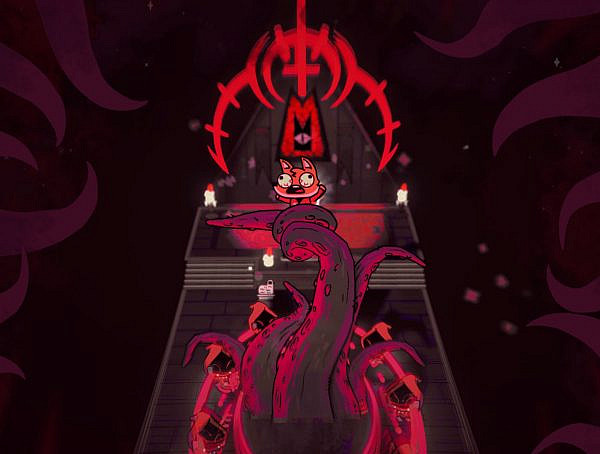In the article Sorry, Wrong Apocalypse: Horizon Zero Dawn, Heaven’s Vault, and the Ecocritical Videogame, Megan Condis discusses the potential of video games as a medium to raise awareness of climate change and possibly even bring about change.
She explains that climate change is perhaps the most acute threat our planet has ever encountered. To make things worse, the massive scale of the problem and its slow build-up make it disturbingly difficult to convey the urgency of climate change to the general public. To mend the situation, Condis claims that we need to invent new forms of storytelling. Ones which are able to clarify the fundamental connections between the earth, humans, and other living beings. Videogames have enormous potential to act as one such form, as gaming has become massively popular and videogames are especially great as pedagogical or philosophical tools. Crucially, however, we must be ready to progress past combat as a core mechanic. Instead, we ought to examine alternative methods of relating to game worlds.
Condis notes how the exceptional magnitude of climate change and the number of intricate decisions that have affected it over centuries is difficult for traditional narrative formats to convey. Condis refers to Rob Nixon’s term “slow violence”, meaning the environmental damage that is hidden and gradual, often spread across time and space, to explain the predicament of climate change. Attritional, slow violence is often not considered as violence at all. As such, slow violence is a fitting definition for climate change and the threat it poses. One of the most challenging aspects of climate change presents us is finding the best way to display it to people and manage to keep them interested.
According to Condis, that is also the problem visible in games that tackle the topic. Games with combat as their main focus in gameplay are constructed to supply players with noticeable, magnificent, and instinctive experiences. Attempting to present a case of slow violence in the same format will face limitations and difficulty in audience captivation. More often than not, slow violence is used as a background in modern games and as an excuse to reuse old forms of violence. This does not, however, mean that videogames can not portray slow violence effectively. Condis writes that new mechanics and modes of gameplay must be created for videogames to properly communicate about climate change. The players could, for example, be rewarded for deliberating the consequences of their actions on a large geological timescale instead of the common focus on “the moment”.
Condis bolsters her argument with two videogame examples, Horizon Zero Dawn (2017) as an example of the combat-focused gameplay and Heaven’s Vault (2019) as an apt example of a new form of videogames expertly taking on the daunting task.
Horizon Zero Dawn is an open-world survival action RPG in which the player must fight their way through a post-apocalyptic earth a thousand years in the future. It is possible to uncover what kind of catastrophe led to the current situation in the game, but it is not necessary, as players can completely sidestep large parts of exposition. Even though Horizon Zero Dawn clearly delivers important attention and awareness to climate change, it will not permit the reasons of the apocalypse to be the main antagonist. Instead, the game offers massive robots as a more exhilarating target to attack. As is often the case, slow violence is used as a backdrop for the intense fighting against a more exciting adversary.
Even though Heaven’s Vault is not about our current predicament, it presents a narrative of an environmental danger just as broad and exhaustive as climate change. The game is about an archeologist in a distant nebula, who sets out on a journey to find a missing colleague. Simultaneously she learns of a looming ecological crisis. Importantly, the game is very clear in pointing out that historical knowledge of the social, economic, and cultural history is needed to solve the situation. The gameplay is focused on investigation and the main antagonist is not some evil villain or an invading army, but rather a willful ignorance in the face of doomsday.
Condis concludes by reiterating the potential of videogames. As new formats capable of portraying climate change, despite the difficulty of seizing it narratively, videogames can give us a chance of conceiving new methods of relating to Earth sooner rather than later.
Condis, M. (2020). Sorry, Wrong Apocalypse: Horizon Zero Dawn, Heaven’s Vault, and the Ecocritical Videogame. Game Studies, 20(3). Retrieved from http://gamestudies.org/2003/articles/condis
Photos:
—. (2017). “Horizon Zero Dawn Press Kit.” Retrieved from https://www.igdb.com/games/horizon-zero-dawn/presskit.
—. (2019). “Heaven’s Vault Press Kit”. Retrieved from https://www.inklestudios.com/press/heavensvault/.
You might also like
More from Game Research Highlights
How do you want to do this? – A look into the therapeutic uses of role-playing games
Can playing RPGs contribute positively to your wellbeing? A recent study aims to find out how RPGs are being used …
Are Souls Games the Contemporary Myths?
Dom Ford’s Approaching FromSoftware’s Souls Games as Myth reveals the Souls series as a modern mythology where gods fall, desires …
Of claws and cuddles: Exploring Dark Cozy Games
Cute, wholesome, safe....dark, heavy, violent? Let's talk about dark cozy games!

















